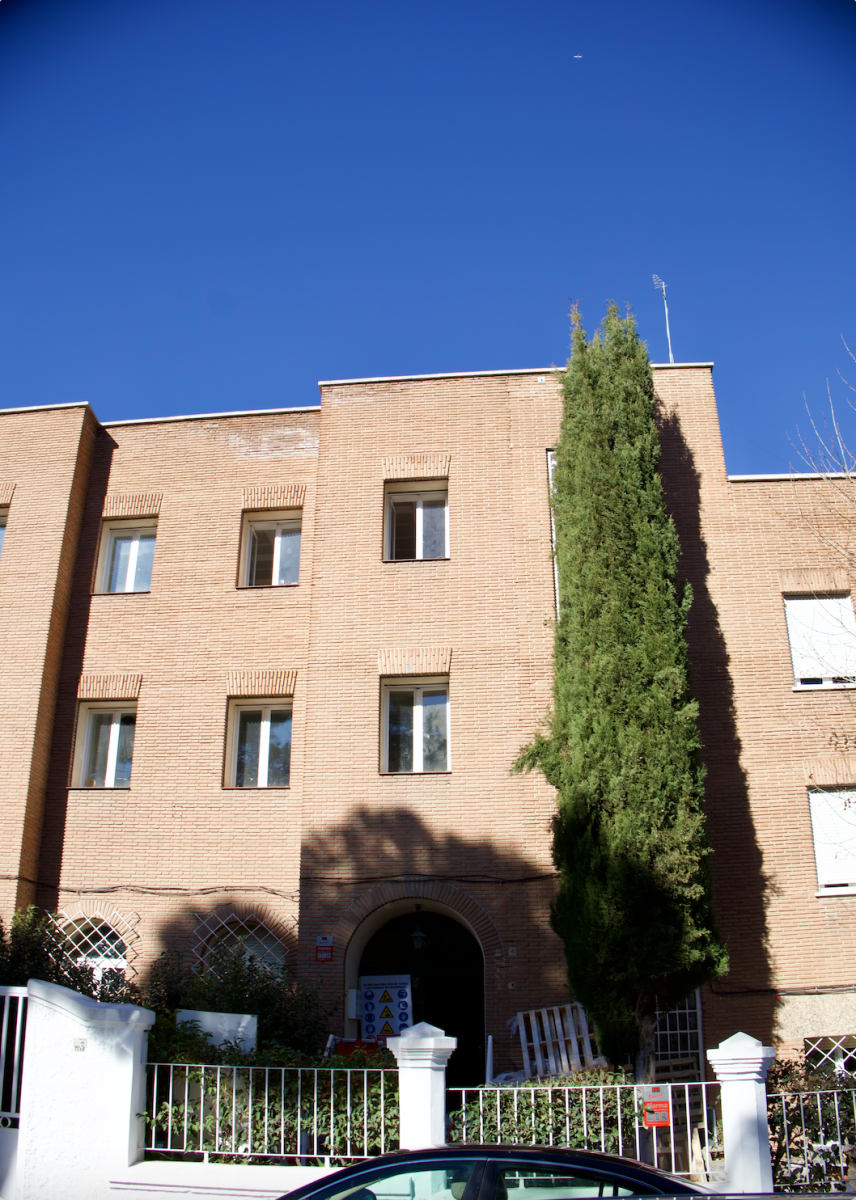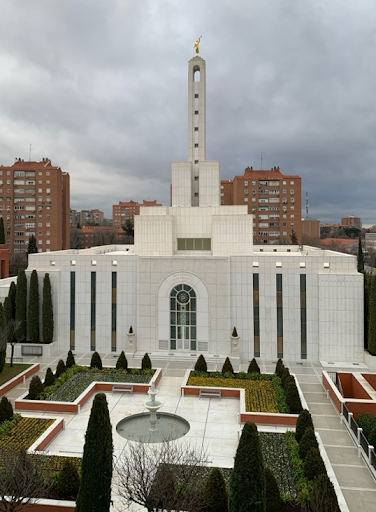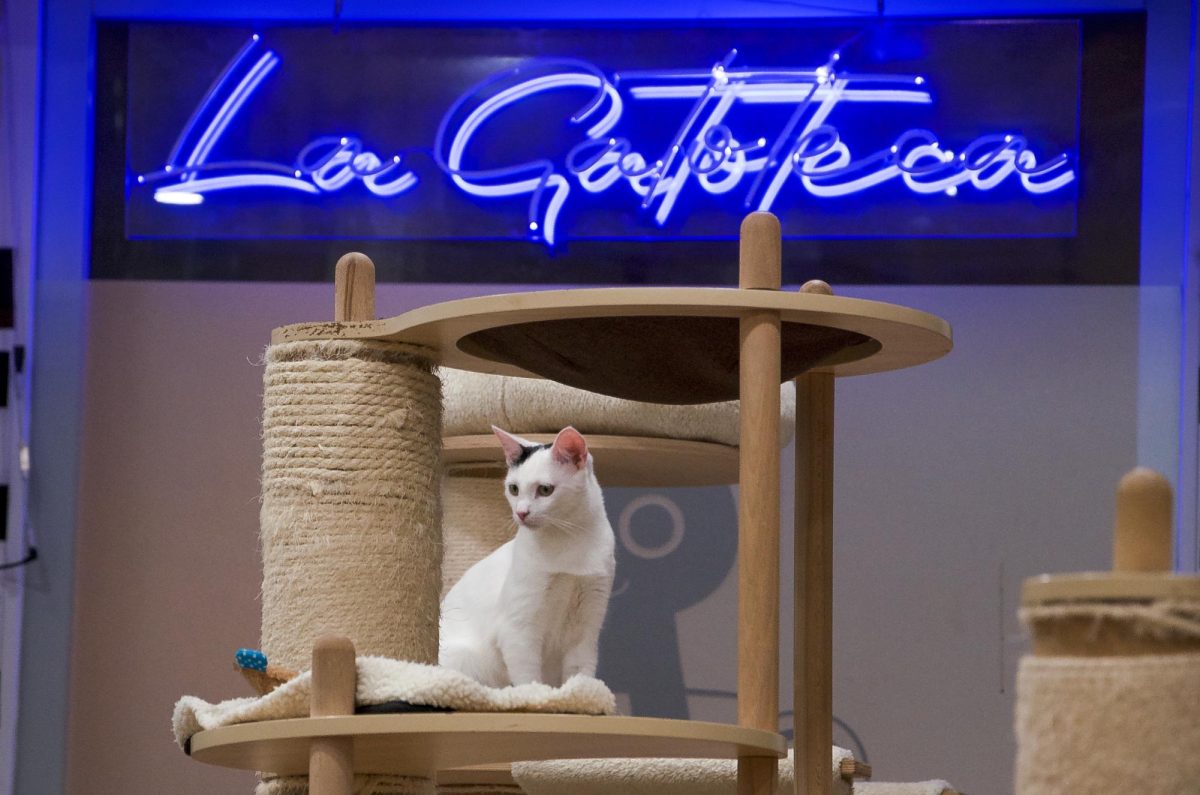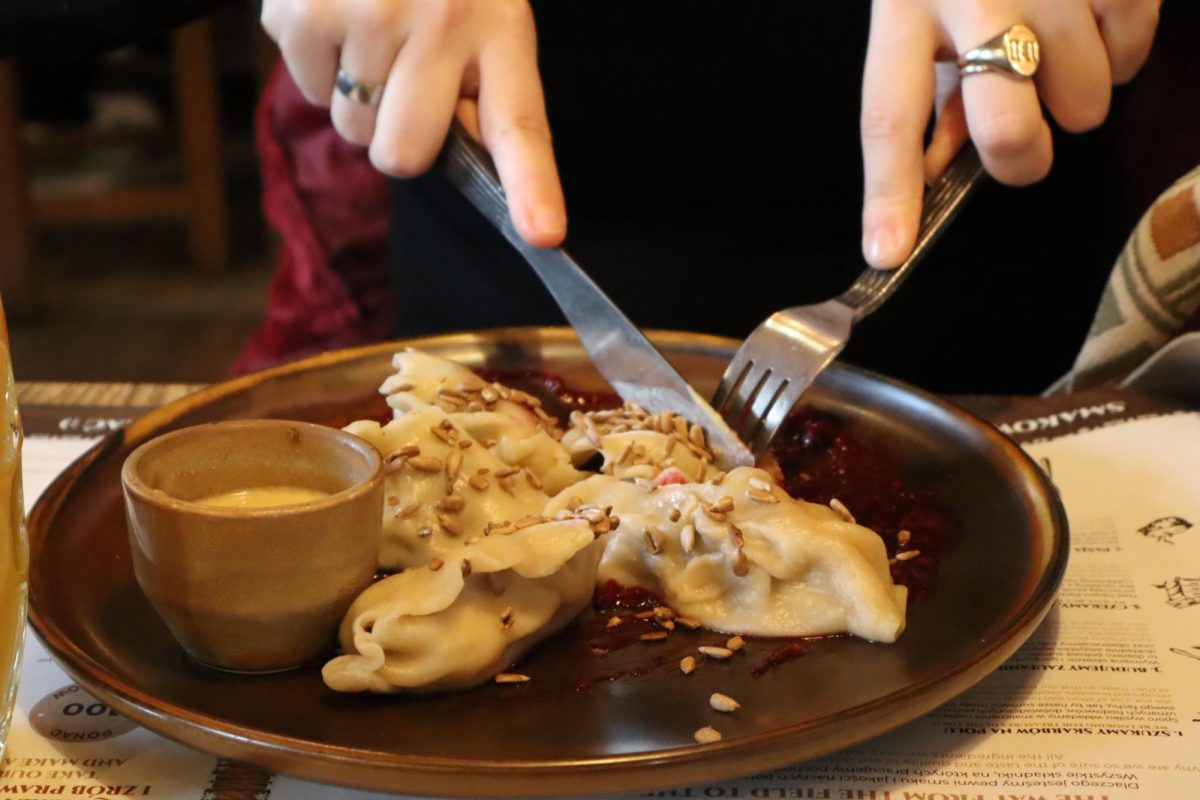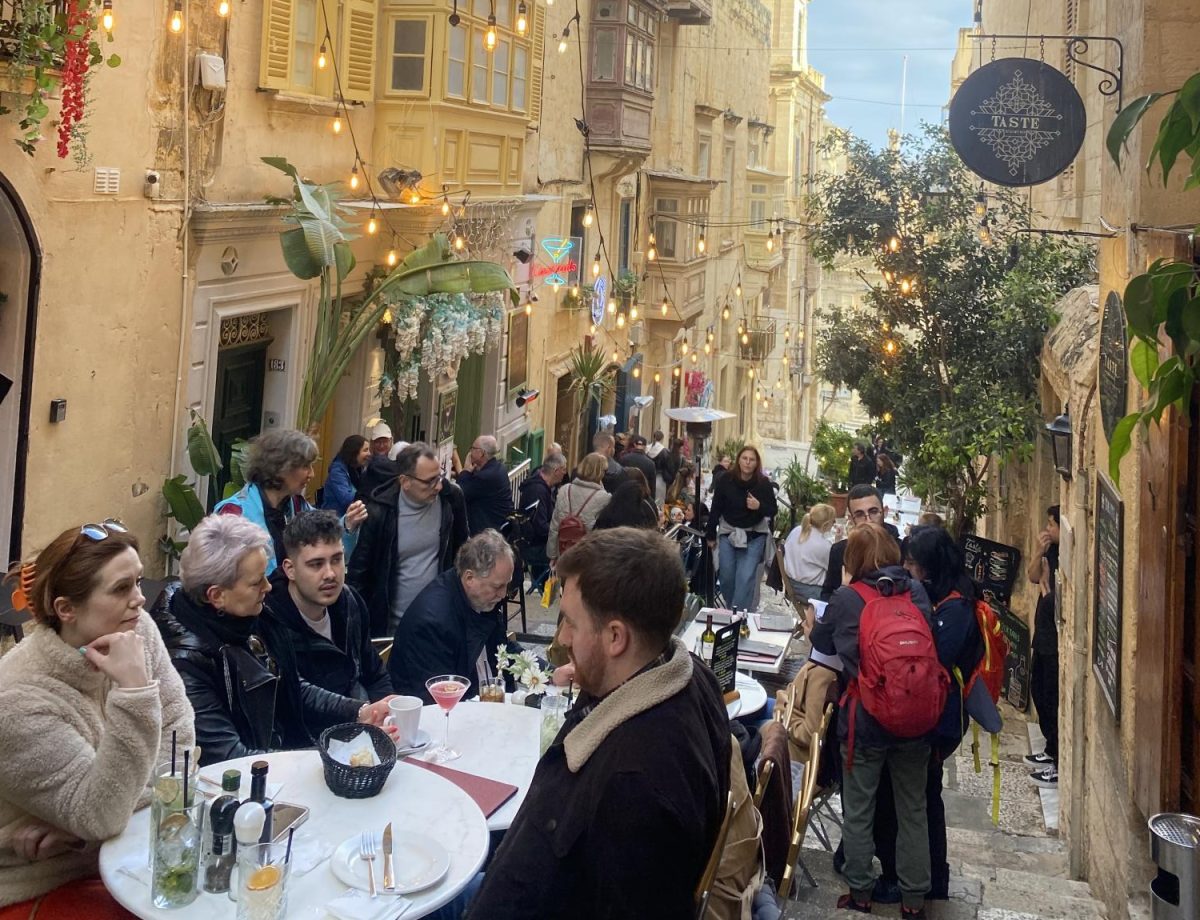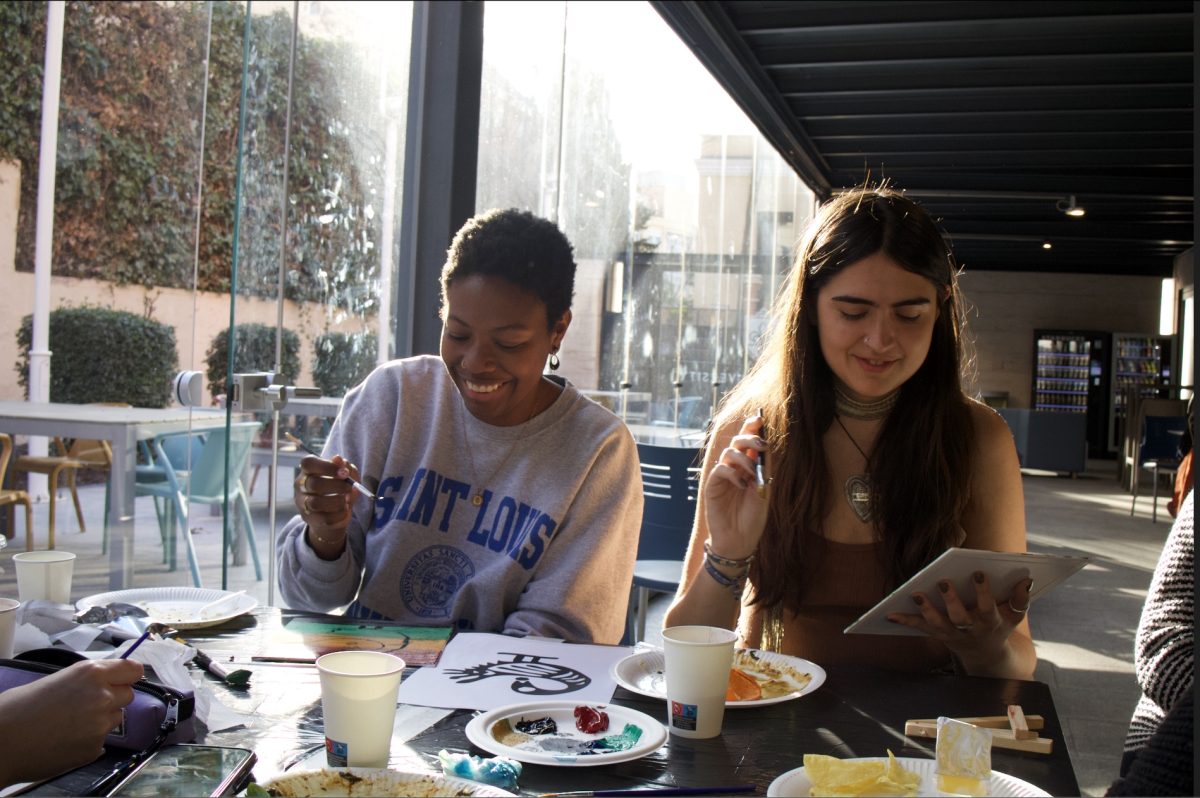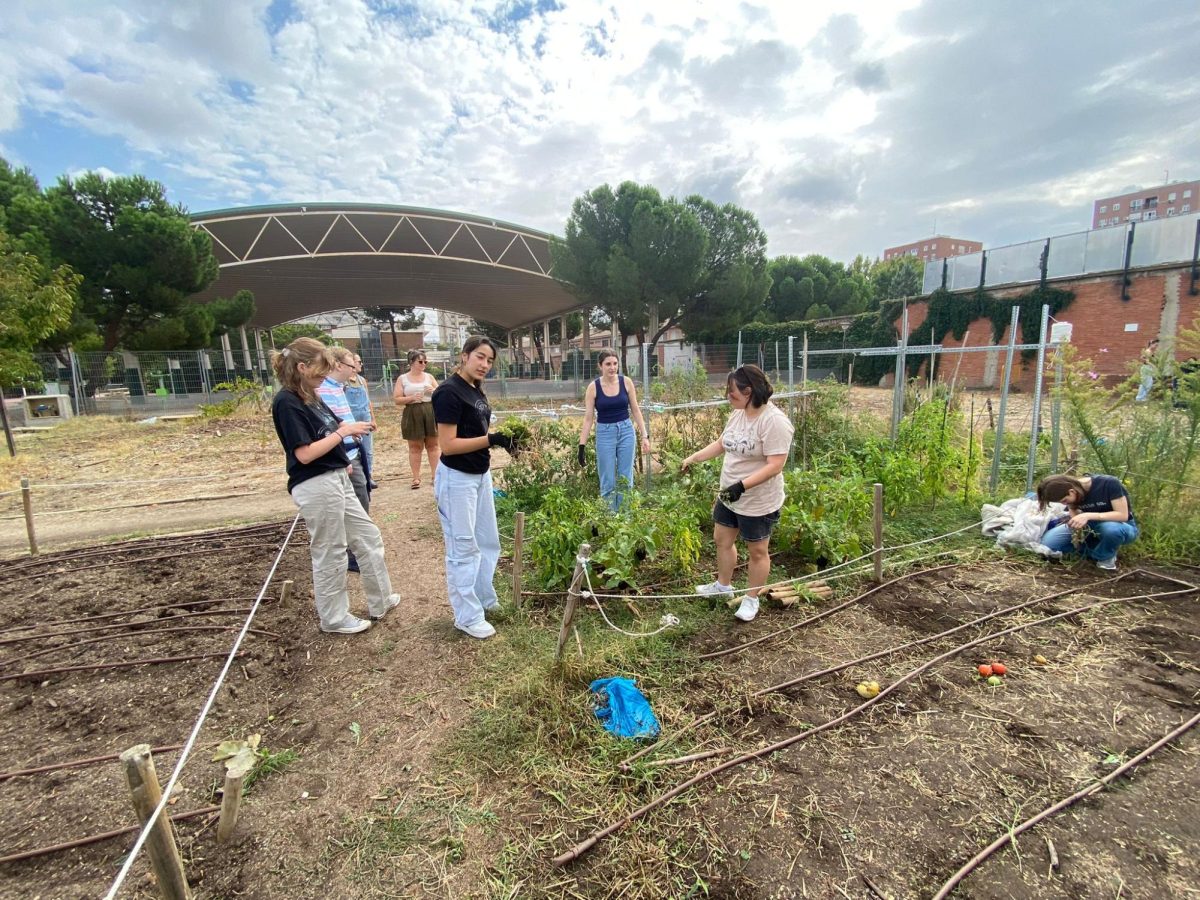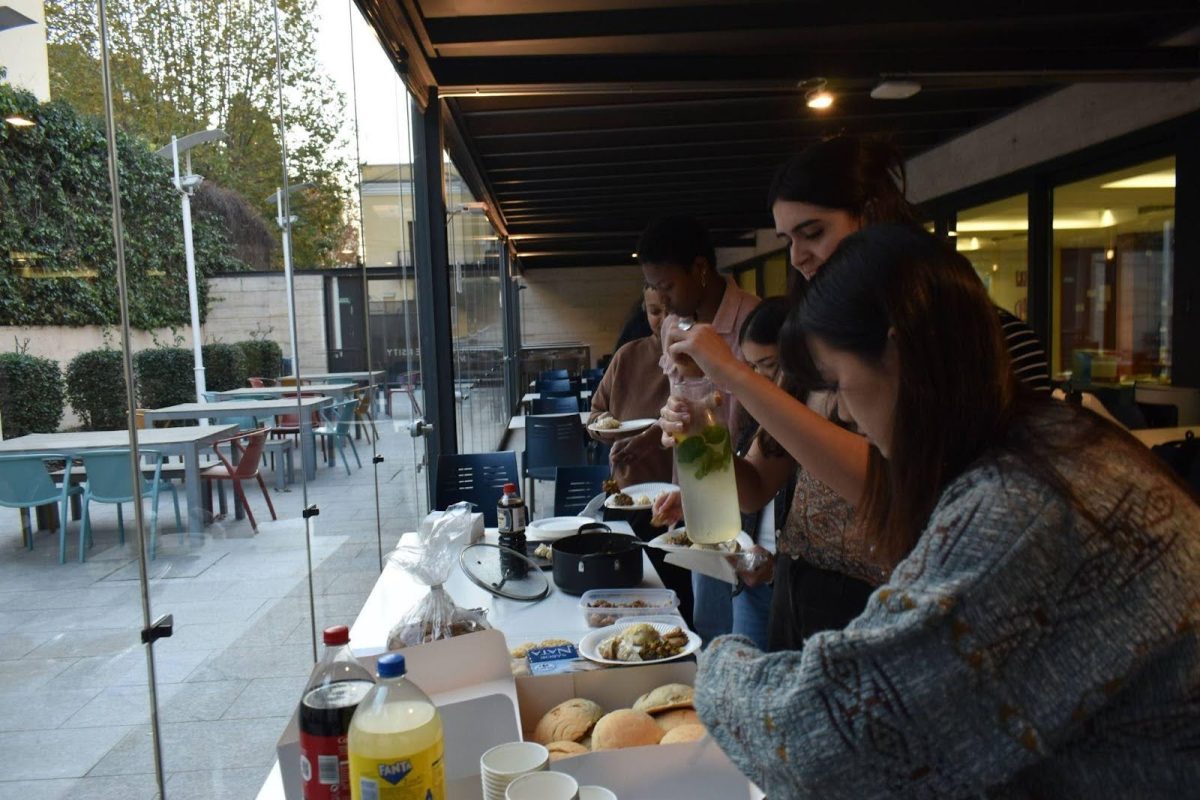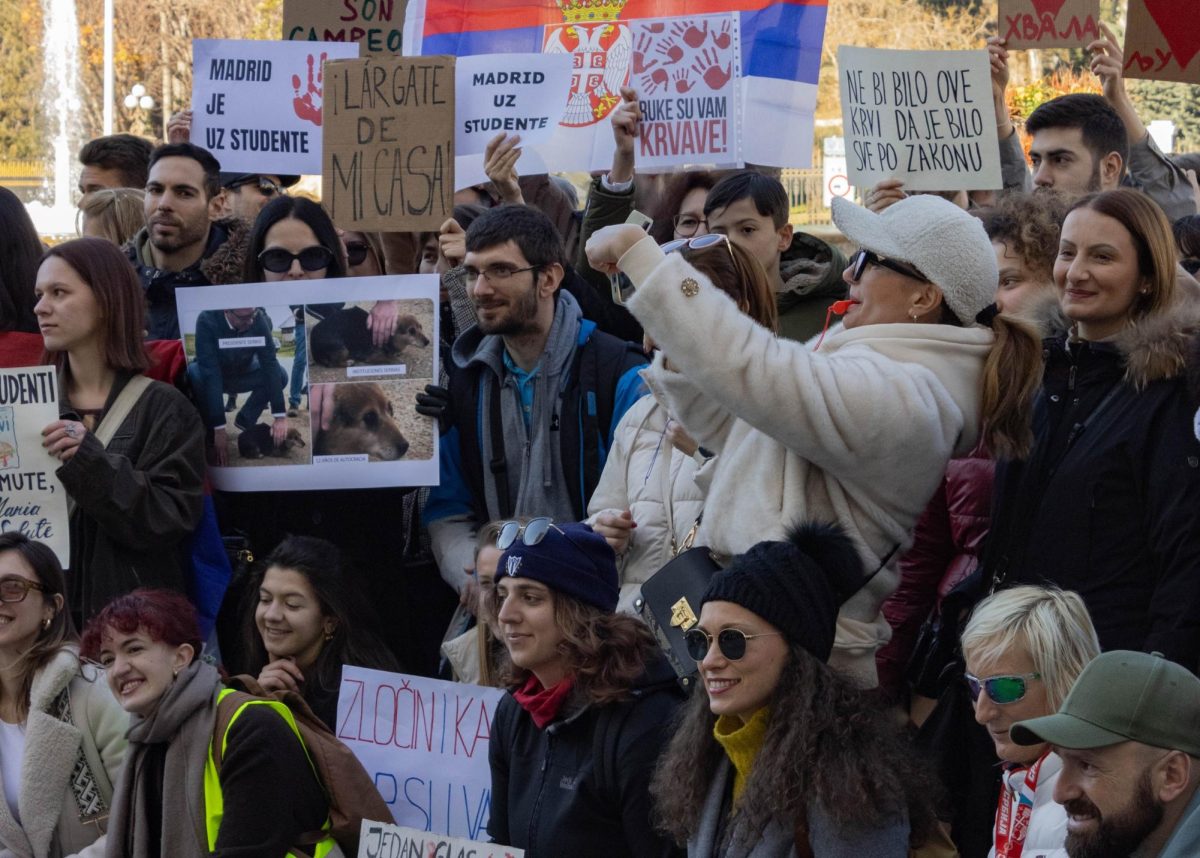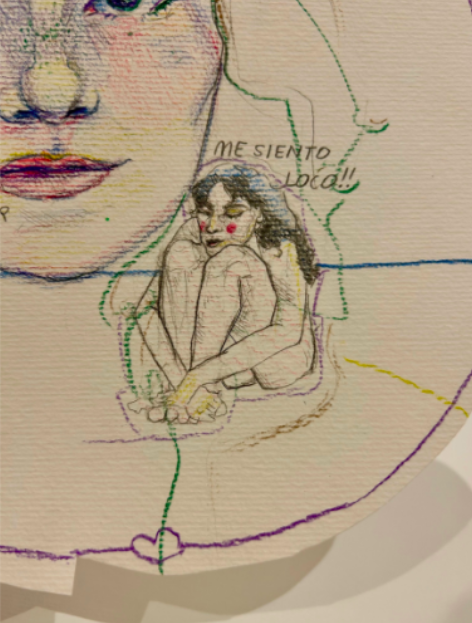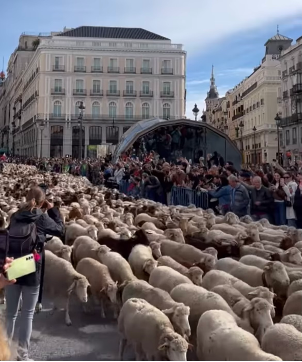Madrid college students were disappointed by the cancellation this fall of La Fiesta de la Transhumancia, an annual ritual in which herders drive flocks of sheep through historic Madrid.
“It’s an event I look forward to attending every year,” said Katelyn Berry, who attended the two previous years and loved the spontaneity of the sheep. “
“I was sad because it’s such a fun, silly thing that happens, but also has historical significance.”
La Fiesta de la Transhumancia recognizes the ancient migration routes through which shepherds would herd their livestock between northern and southern pastures. This practice dates back more than eight centuries before Madrid grew as a major European capital. According to the Madrid tourism office, the Transhumance Festival has been celebrated since 1994 to serve as a “tool for biodiversity, conservation and fighting climate change.” In last year’s parade, 1,100 sheep and 200 goats baaed their way through the city.
“I even touched a sheep last year – it was kinda gross, though,” Berry said, describing the feeling as “a little crunchy but also wholesome.”
Madrid’s agricultural officials canceled the event to prevent the spread of Bluetongue disease to local livestock. The outbreaks have been detected in eight Spanish regions outside of Madrid. The virus, which can be fatal to sheep, is transmitted via mosquito and doesn’t affect humans.
Senior Agatha Thomas was disappointed when they canceled the event. She enjoyed the funny factor of the sheep and this cool glimpse into Spanish culture. She was planning on going with a large group to carry on her tradition of seeing the sheep every year.
“I was dragged into it my freshman year and didn’t know what to expect,” said Thomas. “And then I was shocked at the amount of sheep.”
Spaniard Lara Hop had plans to attend the sheep herding event for the first time and expressed her disappointment at the outbreak of Bluetongue disease.
“I’ve always wanted to see the sheep in real life, and it didn’t happen,” said Hop. “And that makes me sad.”
She has intended to attend the event for years now but has yet to do so.
“I always forget that it’s happening and then I see it on TV and I’m like” – here she punctuates her emotion with an expletive – “I missed it!”
Olivia Wendel, a senior, has gone to the festival for the past three years. She said she had seen sheep before, but not in “such great mass” and she found it to be a very cool experience. Wendel wasn’t planning on attending this year due to scheduling conflicts but was sad to hear the news.
“I saw that it had been cancelled day of, and I was disappointed for sure,” Wendel said. “A sad day for all Madrileños. And all sheep, really.”
Anna Moody said she the cancellation of the event caused “an uproar from sheep lovers,” but she herself was not looking forward to seeing another parade of woolly creatures like the one she watched two years ago.
“It smelled like shit,” Moody said. “It was very loud, it was very crowded, lots of noises, lots of touching, lots of people.”
Wendel, however, said she didn’t really notice the smell, attributing that to the fact that she doesn’t live nearby and only had to experience it briefly during the festival.
“You would definitely have to walk across streets that could be covered in feces.”
Thomas noted the bad smell, but said it was a part of the experience.
“I think one of the funniest parts is the giant cleaning truck that follows the sheep around to clean up the poop.”



